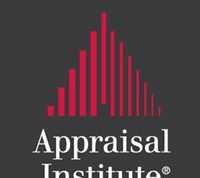Civil Rights Groups Sue U.S. Department of Housing and Urban Development Over Suspension of Rule Assisting Low-Income Families
Washington, D.C. – (RealEstateRama) — Several civil rights organizations sued the U.S. Department of Housing and Urban Development (HUD) challenging its decision to suspend a rule that would have assisted low-income families in securing affordable housing. Five organizations – the Lawyers’ Committee for Civil Rights Under Law, the NAACP Legal Defense and Educational Fund, Inc. (LDF), the Relman, Dane & Colfax PLLC law firm, the Poverty & Race Research Action Council (PRRAC) and Public Citizen Litigation Group– represent the plaintiffs in the lawsuit.
The federal government’s Housing Choice Voucher program—formerly known as the Section 8 voucher program—subsidizes the housing costs of more than two million low-income American households. HUD’s Small Area Fair Market Rent (Small Area FMR) rule would have improved the way that the value of housing vouchers is calculated by allowing low-income families access to a broader market of rental properties. The lawsuit challenges HUD’s delay of the rule’s implementation.
“The suspension of this regulation by the Department of Housing and Urban Development is one more indication of this Administration’s retreat from vigorous civil rights enforcement,” said Kristen Clarke, President and Executive Director of the Lawyers’ Committee for Civil Rights Under Law. “Many years of study and work went into the adoption of this rule, one that promotes greater opportunity in housing choice for low income and minority families and greater residential integration. This challenge to its suspension is crucial to the historical fight for a more integrated society.”
The HCV program is intended to enable families to secure affordable, modest housing in the private market. Too often, however, the vouchers’ allowable rent value does not provide participating families with a meaningful housing choice.
The current formula crudely calculates the value of housing vouchers based on entire metropolitan areas without regard to stark differences in housing costs from neighborhood to neighborhood. Using this formula, the value of a housing voucher is often too low for families to move to better neighborhoods, reinforcing residential poverty.
Because voucher users are disproportionately Black and Latino, policies that limit voucher use primarily to low income neighborhoods also increase racial segregation. The new HUD rule helps to cure this problem by changing how housing voucher amounts are calculated.
“The Small Area Fair Market Rent rule was one of the signature civil rights accomplishments at HUD during the Obama Administration,” Philip Tegeler, PRRAC’s Executive Director, said. “The purpose was to finally start to address the high levels of racial and economic segregation in the Housing Choice Voucher program. If this suspension is not challenged, we will continue to see low-income families and children steered into high poverty neighborhoods where rents are lowest.”
In 2016, HUD issued the Small Area FMR rule, changing the housing voucher formula for 24 metropolitan areas. In each metro area, the rule would require voucher amounts to be based on the average rent values by zip code. The new formula, in effect, raises the allowable rent amount for thousands of participating families and gives them more choices. HUD’s decision, however, delays enforcement of the new rule—scheduled to go into effect January 1, 2018—until January 2020, in 23 of the 24 jurisdictions.
“Time and time again, this Administration has acted to pull back public benefits and public protections provided by law,” said Allison Zieve, Director of Public Citizen Litigation Group. “Here again, it has done so without following well-established legal requirements that exist to protect Americans from unreasonable and unlawful agency action.”
As explained in the complaint, the suspension of the SAFMR rule is unlawful because HUD failed to follow appropriate administrative procedure rules requiring an opportunity for public comment and failed to provide sufficient justifications for the change. The lawsuit also alleges that HUD’s action violates its duty under the Fair Housing Act to spend federal funds in a way that affirmatively furthers fair housing, rather than increasing racial segregation and concentrated poverty. The plaintiffs seek a court order requiring HUD to implement the new Small Area FMR rule on schedule.
“HUD abandoned its fair housing obligations at the expense of America’s poorest renters by suspending this long-overdue rule,” said John P. Relman, managing partner of the civil rights law firm Relman, Dane & Colfax. “We are filing this lawsuit to hold HUD accountable for refusing to follow the regulation it wrote.”
The lead plaintiff, Open Communities Alliance, is a Connecticut-based fair housing organization that works to undo government policies that promote housing segregation. The Alliance is based in Hartford—one of the 23 metro areas affected by HUD’s suspension of the rule.
“The new rule gives families the purchasing power to move to higher-opportunity neighborhoods instead of being confined to segregated and impoverished ones,” said Sherrilyn Ifill, LDF President and Director-Counsel. “But the rule doesn’t just open the door to a wider variety of housing choices. Families would also be able to choose better schools, jobs, healthcare, and even better grocery stores. HUD’s delay will needlessly deprive families of access to these staples of stable communities.”
Read the full complaint, here.













